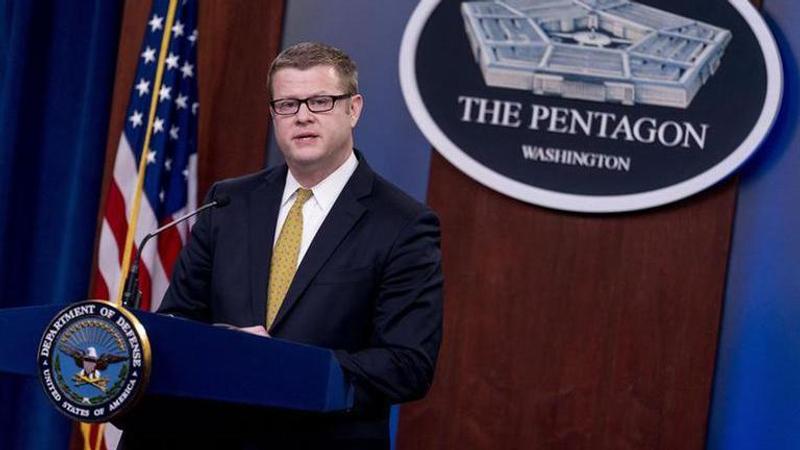Published 08:36 IST, December 10th 2020
Congress vows to watch Army response to Fort Hood violence
Members of Congress pledged on Wednesday to deepen their investigations into sexual assault, harassment and other problems at Fort Hood, Texas, and explore legislation, zeroing in on what officials say are glaring deficiencies in the Army criminal investigations unit at the base

Members of Congress pledged on Wednesday to deepen their investigations into sexual assault, harassment and other problems at Fort Hood, Texas, and explore legislation, zeroing in on what officials say are glaring deficiencies in the Army criminal investigations unit at the base.
A day after Army officials released an independent panel's report on chronic leadership failures and widespread violence at Fort Hood, lawmakers said they will ensure the Army makes long-delayed changes. They praised the five-member panel and the initial response of Army leaders, who on Tuesday fired or suspended 14 officers and enlisted soldiers at the base.
“Red flags” have been ignored at the base for years, said Rep. Jackie Speier, D-Calif., who leads the House Armed Services subcommittee on military personnel. She said she will hold Army leaders accountable as they move to address the failures.
Speier's panel and the House Oversight and Reform subcommittee on national security, headed by Rep. Stephen Lynch, D-Mass., are conducting their own investigations into the recent deaths of soldiers at Fort Hood, gathering thousands of pages of documents.
The investigations come after a year that saw as many as 28 soldiers assigned to Fort Hood die due to suicide, homicide or accidents, and included the bludgeoning death of Spc. Vanessa Guillen. Investigators say Guillen, 20, was killed by Spc. Aaron Robinson, who killed himself July 1 as police were trying to take him into custody.
Guillen was missing for more than two months before her remains were found. Her family has said Robinson sexually harassed her; the Army has said there is no evidence supporting that claim.
The independent panel found there was a permissive environment for sexual assault and harassment at the base. Panel members said in testimony before Speier's subcommittee that there was an alarming lack of knowledge about and confidence in the Army's sexual assault and harassment response and prevention program.
They said soldiers, particularly women, didn't know basic information about reporting incidents or what services there were to help them, and that female soldiers feared retaliation if they did file a report.
As an example, Chris Swecker, chairman of the independent panel, said just 20% of the soldiers in one of the base's larger units got all five “very easy” questions correct in a quiz on the sexual assault prevention program. In most units soldiers got just 45% to 60% correct.
Lawmakers questioned panel members about the Army's criminal investigators and what must be done to improve their ability to effectively work cases of assault, harassment or missing soldiers.
Swecker said that more civilian agents, with longer experience, should be moved to the Army Criminal Investigations Command, or CID, unit at the base. He said the base is used as a training ground for new agents who lack experience and often don't use key technology tools to locate missing solders.
For example, he said agents should immediately seek permission to ping a missing soldier's cellphone to determine their whereabouts, particularly if it's someone who isn't chronically away without leave, or AWOL.
Lynch said the report is a good first step in rectifying what he called a “toxic command climate” at the base. He said he believes CID investigators rely too heavily on polygraph tests to check assault and harassment claims. He pointed to the case of Sgt. Elder Fernandes, who was missing for more than a week before he was found dead about 28 miles from Fort Hood.
Fernandes, who was from Lynch's congressional district, had complained of sexual harassment, but the case was determined to be unsubstantiated after the accused passed a polygraph test. Swecker and other panel members said cases should not be decided by polygraph tests and that experienced agents would know better.
Lynch said his subcommittee will continue to investigate the deaths of Guillen and Fernandes and "ensure that Army leaders restore a climate at Fort Hood that respects, values, and protects the men and women under their command.”
Army Secretary Ryan McCarthy on Tuesday fired three top commanders and suspended two others pending a further investigation. He also ordered a separate investigation into staffing and procedures at the base’s CID unit. The Guillen family's lawyer said CID agents were among the 14 affected by McCarthy's administrative actions.
Army leaders concluded that leadership failures contributed to the widespread crime problems at Fort Hood. They accepted the review panel's recommendations and pledged to enact the changes.
The five-member panel spent three weeks at Fort Hood and conducted more than 2,500 interviews, including 647 in person. More than 500 of those were with female soldiers. They also collected more than 31,000 responses to a sexual assault and harassment survey.
Image credits: AP
Updated 08:36 IST, December 10th 2020




